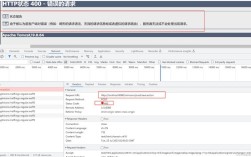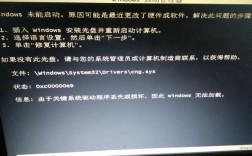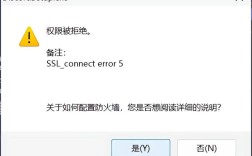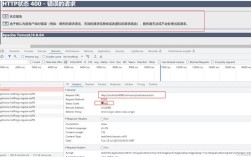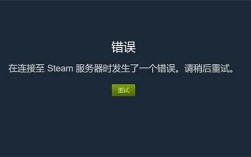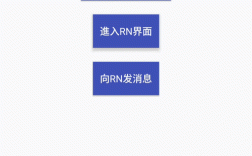在处理编程问题时,报错信息是解决问题的关键。unfold 是一个常见的函数,用于将嵌套的数据结构展开成更简单的格式,在 Haskell 中,unfold 函数常用于生成列表或递归数据结构,如果unfold 函数使用不当,就会导致各种错误,本文将详细探讨unfold 报错的常见原因及解决方法,并提供一个常见问题解答(FAQs)。
常见报错原因及解决方法

1. 类型不匹配错误(Type Mismatch Error)
描述:unfold 函数需要特定的输入类型,如果输入类型不匹配,就会引发类型不匹配错误。
示例代码:
import Data.List (unfoldr) data Tree a = Leaf a | Node [Tree a] deriving Show exampleTree :: Tree Int exampleTree = unfoldr (\x > Just (x, x 1)) 5
错误信息:
• Couldn't match expected type ‘Maybe (Int, [Tree Int])’
with actual type ‘Maybe (Int, Int)’
• In the expression: Just (x, x 1)
In the first argument of ‘unfoldr’, namely ‘(\ x > Just (x, x 1))’解决方法: 确保unfold 函数的返回类型与期望的类型一致,在这个例子中,应该返回一个(Int, [Tree Int]) 对,而不是(Int, Int)。
修正后代码:

exampleTree :: Tree Int exampleTree = unfoldr (\x > Just (x, replicate x (Node []))) 5
2. 无限循环错误(Infinite Recursion Error)
描述: 如果unfold 函数中的递归逻辑没有终止条件,就会导致无限循环错误。
示例代码:
import Data.List (unfoldr) data List a = Nil | Cons a (List a) deriving Show infiniteList :: List Int infiniteList = unfoldr (\x > Just (x, x + 1)) 0
错误信息:
Unfolding would result in an infinite list解决方法: 确保递归逻辑有一个明确的终止条件,在这个例子中,我们需要添加一个终止条件来避免无限递归。
修正后代码:

finiteList :: List Int finiteList = unfoldr (\x > if x < 10 then Just (x, x + 1) else Nothing) 0
3. 空值错误(Null Value Error)
描述: 如果unfold 函数中的递归逻辑返回了空值(Nothing),就会导致空值错误。
示例代码:
import Data.List (unfoldr) data List a = Nil | Cons a (List a) deriving Show emptyList :: List Int emptyList = unfoldr (\x > Nothing) 0
错误信息:
Unfolding would result in an empty structure解决方法: 确保递归逻辑不会返回空值,在这个例子中,我们需要确保递归逻辑总是返回一个有效的值。
修正后代码:
nonEmptyList :: List Int nonEmptyList = unfoldr (\x > Just (x, x + 1)) 0
表格归纳
| 报错类型 | 描述 | 示例代码 | 错误信息 | 解决方法 |
| 类型不匹配错误 | unfold 函数需要特定的输入类型,如果输入类型不匹配,就会引发类型不匹配错误。 | exampleTree = unfoldr (\x > Just (x, x 1)) 5 | Couldn't match expected type ‘Maybe (Int, [Tree Int])’ with actual type ‘Maybe (Int, Int)’ | 确保unfold 函数的返回类型与期望的类型一致。 |
| 无限循环错误 | 如果unfold 函数中的递归逻辑没有终止条件,就会导致无限循环错误。 | infiniteList = unfoldr (\x > Just (x, x + 1)) 0 | Unfolding would result in an infinite list | 确保递归逻辑有一个明确的终止条件。 |
| 空值错误 | 如果unfold 函数中的递归逻辑返回了空值(Nothing),就会导致空值错误。 | emptyList = unfoldr (\x > Nothing) 0 | Unfolding would result in an empty structure | 确保递归逻辑不会返回空值。 |
FAQs
Q1:unfold 函数的输入和输出类型是什么?
A1:unfold 函数通常接受一个种子值和一个产生器函数作为输入,产生器函数的返回类型应该是一个可能包含结果值和下一个种子值的对,在 Haskell 中,unfoldr 函数的签名是unfoldr :: (b > Maybe (a, b)) > b > [a],其中b 是种子类型,a 是结果类型,返回的是一个列表[a]。
Q2: 如何避免在使用unfold 函数时出现无限循环错误?
A2: 为了避免无限循环错误,确保递归逻辑有一个明确的终止条件,可以通过在递归逻辑中添加适当的条件判断来实现这一点,在 Haskell 中,可以使用if 语句来判断是否满足终止条件,如果满足终止条件,返回Nothing;否则,返回包含结果值和下一个种子值的对。





